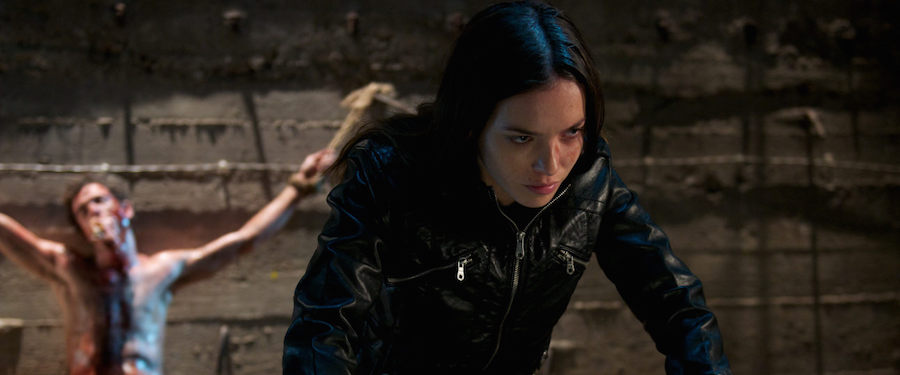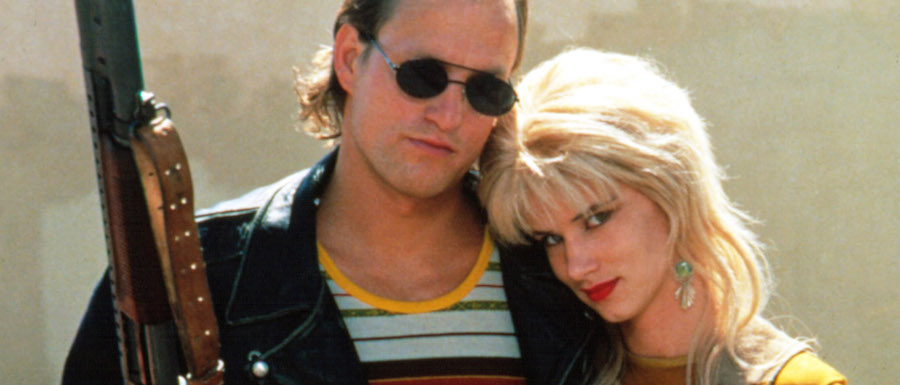Regardless of which form it takes, art is often the recipient of rampant debate. Of course, movies are no exception and are often criticised due to their huge audience and influence on culture. Some movies are banned, some lead to protests and even violence but they all have one thing in common: controversy.
15. Antichrist (2009)
 Although many of Lars von Trier’s films have caused controversy throughout the years, Antichrist has to be the most notorious movie of his career. The art-horror piece follows a nameless couple as they attempt to cope with the death of their toddler. After retreating to the woods, the couple begins to torture each other mentally, and eventually, physically.
Although many of Lars von Trier’s films have caused controversy throughout the years, Antichrist has to be the most notorious movie of his career. The art-horror piece follows a nameless couple as they attempt to cope with the death of their toddler. After retreating to the woods, the couple begins to torture each other mentally, and eventually, physically.
Graphic portrayals of sex and violence are rampant throughout Antichrist, including two scenes of genital mutilation, however this is not necessarily what caused a stir amongst audiences.
After premiering at Cannes in 2009, many criticised Antichrist and claimed that it was yet another example of von Trier’s misogynist views – despite the fact the director said he identified more with the female character than the male. Nevertheless, a press conference ensued where journalists tore into the movie and it’s director, clawing for an answer or an explanation for what they’d just seen.
Eventually, the Cannes jury designed an exclusive ‘anti-humanist’ award specifically for the movie, which many thought overshadowed Charlotte Gainsbourg’s rightful claim to the Best Actress Award.
14. Freaks (1932)
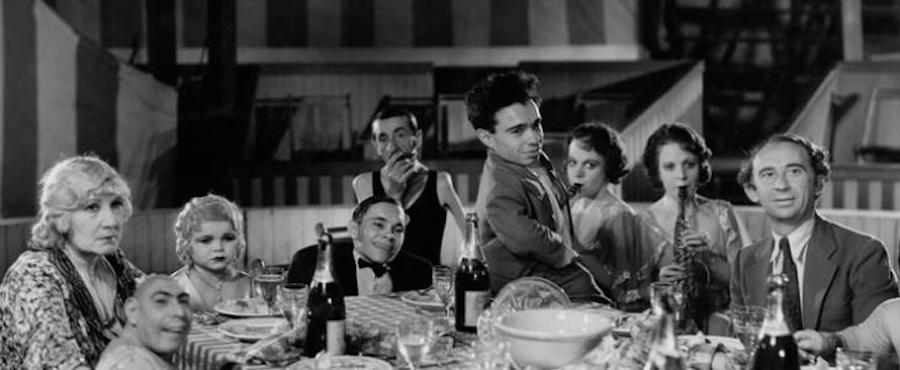 After the success of Dracula, Tod Browning was the 1931 equivalent of James Cameron. His level of accomplishment meant that he could finally work on a personal project he had been harboring for years, a tale of carnival folk infiltrated by an outsider. The story follows beautiful trapeze artist Cleopatra as she seduces noble ‘midget’ Hans to gain his fortune.
After the success of Dracula, Tod Browning was the 1931 equivalent of James Cameron. His level of accomplishment meant that he could finally work on a personal project he had been harboring for years, a tale of carnival folk infiltrated by an outsider. The story follows beautiful trapeze artist Cleopatra as she seduces noble ‘midget’ Hans to gain his fortune.
To the horror of MGM and many audience members – one woman miscarried during a test screening – Browning insisted on using real circus performers. Several scenes were removed, one including a castration, and have been lost forever. However, a 64-minute long version made it to theatres before being removed due to the publics traumatised reaction.
13. The Exorcist (1973)
 Now considered one of the best horror movies of all time, William Friedkin’s The Exorcist was greeted with claims that it was basically religious pornography that glorified Satan. Based on Peter Beatty’s story of a girl child possessed by the devil, the movie was the focus of scrutiny long before it’s release, with initial trailers deemed too disturbing and banned in multiple theaters.
Now considered one of the best horror movies of all time, William Friedkin’s The Exorcist was greeted with claims that it was basically religious pornography that glorified Satan. Based on Peter Beatty’s story of a girl child possessed by the devil, the movie was the focus of scrutiny long before it’s release, with initial trailers deemed too disturbing and banned in multiple theaters.
When the full feature premiered the controversy escalated. Entire towns banned the movie, so those eager to see it had to organise bus rides to different cinemas. Evangelist Billy Graham suggested that the literal devil resided in the film reels and main actress Linda Blair received multiple threats claiming she glorified the devil. Even stranger, rumors of peculiar accidents and occurrences on set coupled with the mysterious deaths of people involved in production further cemented the idea of Satan’s presence throughout the movie.
Still, The Exorcist went on to be a huge hit at the box office and was nominated for multiple Oscars despite the controversy.
12. I Spit On Your Grave (2010)
Mier Zarchi’s I Spit On Your Grave has different implications depending on whom you consult. Some suggest that the movie is pornographically violent and misogynistic, where others claim the brutality is an empowering feminist tool.
Zarachi’s movie tells the tale of a young woman who moves to a new town to concentrate on her writing. Shortly after her arrival she is beaten, raped and left for dead by a group of men, who she then hunts down and kills. There have been multiple rape-revenge releases in the past, most notably Thriller: A Cruel Film and The Last House On The Left, however it is I Spit On Your Grave that got all the attention due to it’s unrelenting violence. Roger Elbert damned the movie saying is reveled in the heinous acts that it should have condemned, and many countries banned it claiming that it celebrated violent behaviour towards women.
However, many critics and scholars including Carol J. Clover, author of Men, Women and Chainsaws, suggested that the movie made you sympathise with the female victim and rejoiced in the revenge against her male attackers. This appears to be the director’s intention as the movie was originally entitled Day Of The Woman.
11. Song Of The South (1946)
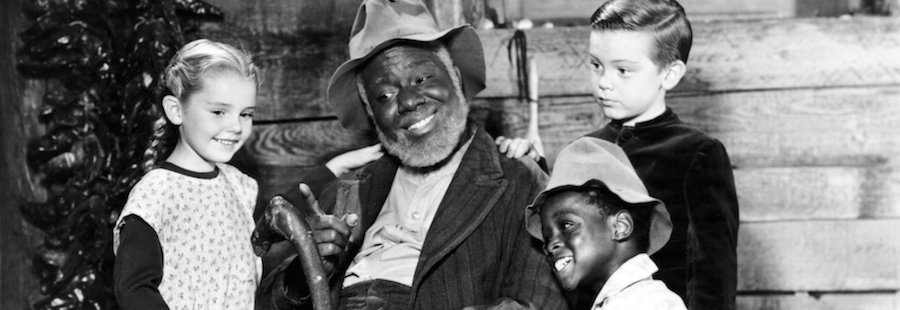 Problematic depictions of African Americans struck a nerve with many critics and organisations, including the NAACP and The National Negro Congress, following the release of Disney’s Song Of The South. Critics said that the movie stereotyped African Americans, celebrated plantation life and ignored the appalling realities of slavery. Although the movie’s song Zip-a-dee Doo Dah remains, Disney never released DVD or Home Video versions throughout America.
Problematic depictions of African Americans struck a nerve with many critics and organisations, including the NAACP and The National Negro Congress, following the release of Disney’s Song Of The South. Critics said that the movie stereotyped African Americans, celebrated plantation life and ignored the appalling realities of slavery. Although the movie’s song Zip-a-dee Doo Dah remains, Disney never released DVD or Home Video versions throughout America.
10. Cannibal Holocaust (1980)
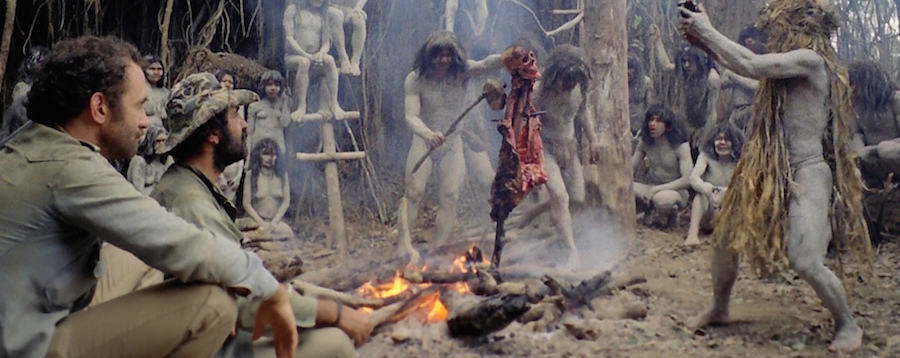 Ruggera Deodato’s celebration of the Italian cannibal-movie obsession Cannibal Holocaust is brimming with so much violence that some versions of the DVD still use ‘The most controversial movie ever made’ as it’s strapline. One of the first found-footage movies, Cannibal Holocaust could be regarded as a critical piece of social commentary, however the brutality and controversy surrounding the production have overshadowed this message.
Ruggera Deodato’s celebration of the Italian cannibal-movie obsession Cannibal Holocaust is brimming with so much violence that some versions of the DVD still use ‘The most controversial movie ever made’ as it’s strapline. One of the first found-footage movies, Cannibal Holocaust could be regarded as a critical piece of social commentary, however the brutality and controversy surrounding the production have overshadowed this message.
The violence is so disturbing throughout this movie that Deodato was charged with murder by Italian authorities. After the director proved that the actors hadn’t been murdered on set and the violence was simply staged, he was cleared of all charges. However, the violence against animals throughout the movie was not staged, a decision Deodato claims he still feels remorse over.
9. Natural Born Killers (1994)
Although director Oliver Stone may have aimed to create a modern version of Bonnie and Clyde, which mocked America’s obsession with violence and serial killers, Natural Born Killers actually managed to send an entirely opposite message.
The violent social satire staring serial killer couple Mickey and Mallory Knox not only made the murderers likable, the movie was actually blamed as inspiration for multiple real life crimes.
8. Salo; or, The 120 Days Of Sodom (1975)
 Mysteriously murdered weeks before his movie’s world premiere, director Pier Paolo Pasolini never witnessed the controversy surrounding The 120 Days Of Sodom. Blatantly symbolic of the corruption and devastation of fascist Italy, this movie was banned and censored around the world due to graphic depictions of torture and sexual abuse.
Mysteriously murdered weeks before his movie’s world premiere, director Pier Paolo Pasolini never witnessed the controversy surrounding The 120 Days Of Sodom. Blatantly symbolic of the corruption and devastation of fascist Italy, this movie was banned and censored around the world due to graphic depictions of torture and sexual abuse.
Based on The 120 Days Of Sodom by the Marquis de Sade, the movie shares the story of eighteen teenagers forced to do unspeakable acts for the amusement of Italian politicians and religious bureaucrats. These acts include the consumption of human excrement and the removal of eyes and tongues. While some regard the movie as a masterpiece, it was banned in Britain and Australia, later causing controversy in the USA after twenty years when owners of a video store were arrested for ‘pandering’.
7. Bonnie And Clyde (1967)
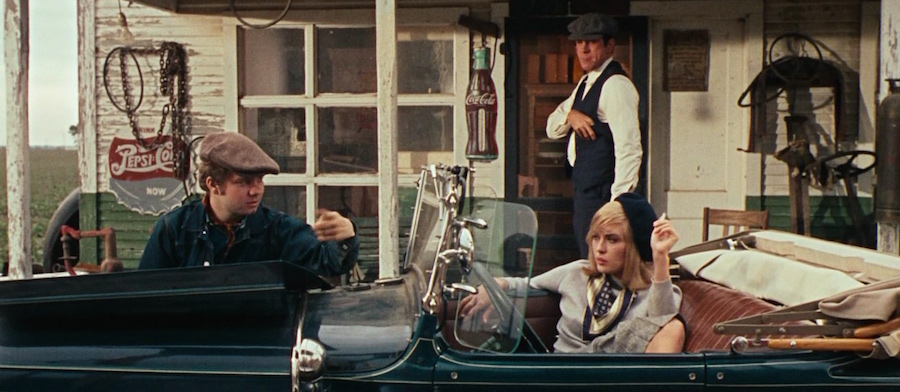 Violence is common in new releases today, but back in the 60s audiences were horrified by Bonnie And Clyde. This classic follows the lives of infamous murderers, bank robbers and lovers Bonnie and Clyde, causing many to agree it glamorized murder and the life of outlaws. It was the film’s finale that really struck a nerve with audiences though, as the pair is shot down in what was one of the most violent scenes in American movies at the time.
Violence is common in new releases today, but back in the 60s audiences were horrified by Bonnie And Clyde. This classic follows the lives of infamous murderers, bank robbers and lovers Bonnie and Clyde, causing many to agree it glamorized murder and the life of outlaws. It was the film’s finale that really struck a nerve with audiences though, as the pair is shot down in what was one of the most violent scenes in American movies at the time.
6. Birth Of A Nation (1915)
 It is undeniable that D.W. Griffith’s was a pioneer in the world of cinema, however Birth Of A Nation was so racist, inaccurate and celebrated the Klu Klux Klan so blatantly that it caused many riots and worse still, the reformation of the KKK in the 1920s.
It is undeniable that D.W. Griffith’s was a pioneer in the world of cinema, however Birth Of A Nation was so racist, inaccurate and celebrated the Klu Klux Klan so blatantly that it caused many riots and worse still, the reformation of the KKK in the 1920s.
Movie techniques and devices used throughout the movie undoubtedly changed cinema forever, however its incredibly offensive nature caused uproar from the NAACP and chaos in both Boston and Philadelphia.
5. Triumph Of The Will (1934)
 Leni Riefenstahl’s depiction of the Nazi Party Congress in Nuremberg, Adolf Hitler’s leadership and the glory of the Third Reich won various awards around the world due to its cinematic capacity. However, with the benefit of hindsight, many view Triumph Of The Will as Nazi propaganda, which glorifies a mass murderer and his followers. Others disagree with this label, and suggest that Riefenstahl’s work is simply a documentary.
Leni Riefenstahl’s depiction of the Nazi Party Congress in Nuremberg, Adolf Hitler’s leadership and the glory of the Third Reich won various awards around the world due to its cinematic capacity. However, with the benefit of hindsight, many view Triumph Of The Will as Nazi propaganda, which glorifies a mass murderer and his followers. Others disagree with this label, and suggest that Riefenstahl’s work is simply a documentary.
4. The Passion Of The Christ (2004)
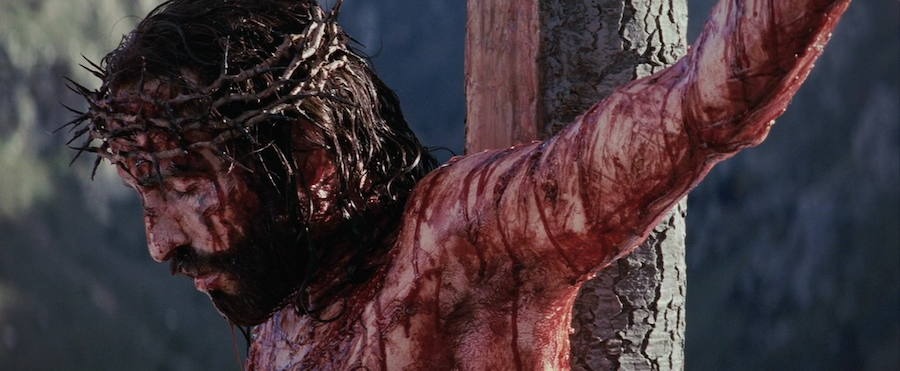 The amount of violence shown throughout The Passion Of The Christ may have been the cause of some less than savory reviews – David Edelstein called it a ‘two hour and six minute snuff movie’ – but it was Mel Gibson himself who stirred so much controversy with the release of his movie.
The amount of violence shown throughout The Passion Of The Christ may have been the cause of some less than savory reviews – David Edelstein called it a ‘two hour and six minute snuff movie’ – but it was Mel Gibson himself who stirred so much controversy with the release of his movie.
There were many complaints from the Jewish community before the movie was released, with claims that anti-Semitism was rampant throughout early screenings and the script. The Jewish characters in The Passion Of The Christ were frequently portrayed as a mob of stereotypical, angry individuals hungry for Jesus’ blood. These complaints only became more apparent when Mel Gibson himself went on an anti-Semitic rant after drunk driving in 2006.
3. Last Tango In Paris (1972)
 Sex has often appalled and outraged audiences throughout the history of cinema, but few movies have caused more controversy due to their sexual nature than Last Tango In Paris. Whilst many critics in the USA labeled the movie as pornography – we blame the butter scene – director Bertolucci was actually put on trial for obscenity in his home country of Italy, where the movie was banned until 1987.
Sex has often appalled and outraged audiences throughout the history of cinema, but few movies have caused more controversy due to their sexual nature than Last Tango In Paris. Whilst many critics in the USA labeled the movie as pornography – we blame the butter scene – director Bertolucci was actually put on trial for obscenity in his home country of Italy, where the movie was banned until 1987.
2. A Clockwork Orange (1971)
 Banned for 27 years in the UK, A Clockwork Orange is arguably one of the most infamous movies in history. Director Stanley Kubrick and his wife claimed that they faced multiple protests and threats following the movies’ release, to the point where Kubrick himself asked Warner Brothers to avoid distribution in the UK. A Clockwork Orange only became available in Britain following the director’s death in 1999.
Banned for 27 years in the UK, A Clockwork Orange is arguably one of the most infamous movies in history. Director Stanley Kubrick and his wife claimed that they faced multiple protests and threats following the movies’ release, to the point where Kubrick himself asked Warner Brothers to avoid distribution in the UK. A Clockwork Orange only became available in Britain following the director’s death in 1999.
More worryingly, many crimes have been linked to the movie, including one case where rapists mimicked the movie by chanting ‘Singing In The Rain’.
1.The Last Temptation Of Christ (1988)
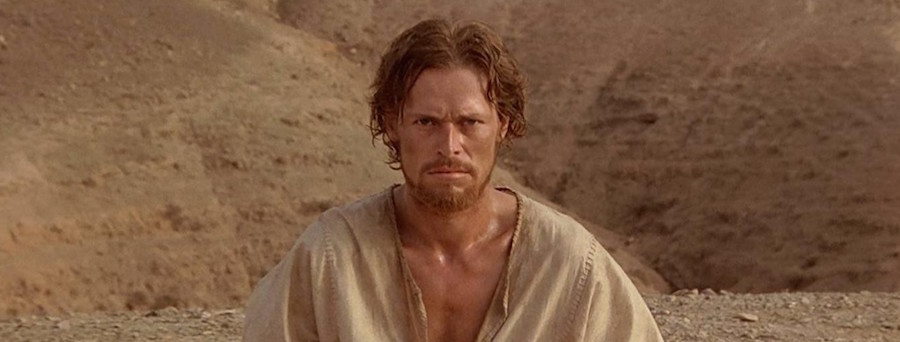 Martin Scorsese’s adaption of Niko Kazantzaki’s book and the controversy that followed was almost inevitable due to its religious material, despite the fact it was not based on scripture.
Martin Scorsese’s adaption of Niko Kazantzaki’s book and the controversy that followed was almost inevitable due to its religious material, despite the fact it was not based on scripture.
The Last Temptation Of Christ accompanies Jesus through his life as a man, rather than as a divine being, in a widely celebrated attempt to investigate and comprehend the struggle Jesus faced in the biblical stories. However, one scene caused a ruckus amongst the religious as it showed Satan tempting Jesus off the cross by showing him an alternative life, which includes sex and a family. This scene was apparently so blasphemous that French Christian fundamentalists threw Molotov Cocktails at a cinema in Paris, injuring many moviegoers, just like Jesus would have wanted.
The Last Temptation Of Christ is still banned throughout the Philippines and Singapore.

